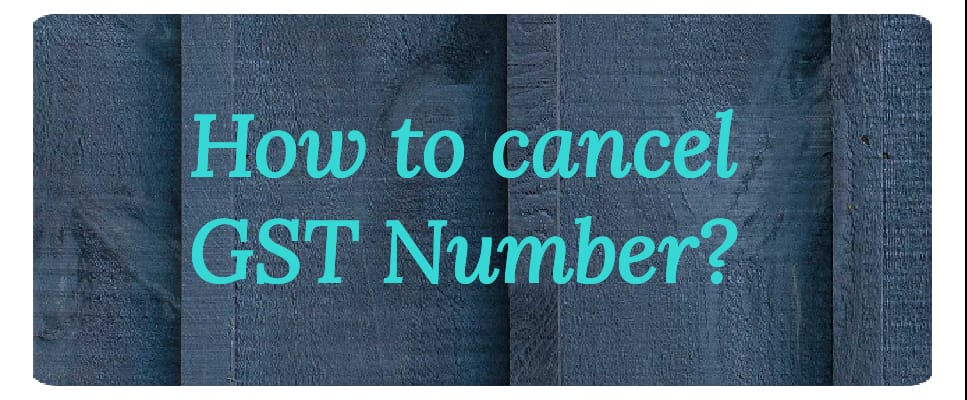Introduction
GST Registration can be cancelled by any person who is no longer required to file GST Return if either his annual turnover is below the exemption limit or the taxpayer is no longer liable to be a registered person or any other reason explained below. One must settle all the GST liability before they could apply for cancellation of GSTIN.
The article below illustrates the following:
- Circumstances under while a cancellation application can be filed.
- Who can apply for cancellation?
- How long does it take to cancel?
- Should we still file the GST returns in the transition period?
- Revocation of cancellation order
Circumstances when a taxpayer can file for cancellation of GST Registration
Any person who comes under the following circumstances can file for cancellation of GST.
- In the event of discontinuance or closure of the business.
- If the taxable person is ceased to be liable to pay tax.
- In the case of amalgamation, merger, de-merger, sale, lease, or otherwise.
- Change in constitution of business i.e. change in PAN.
- If the business was not commenced after voluntary registration.
- A taxable person is no longer liable to be registered under the GST Act.
- In the case of death of the sole proprietor.
Who can apply for Cancellation of Registration?
The following person can file for cancellation of registration:
1. Existing taxpayer
2. The migrated taxpayer, if the application of enrollment has been allowed.
3. The migrated taxpayer, if not filed any other form after filing an application of enrollment.
4. Officer, either on his own or on an application filed by the registered person or legal heir after his death.
The following people cannot file for cancellation of registration:
1. Persons registered as tax deductor or tax collectors.
2. Any person to whom Unique Identity Number (UIN) has been allotted.
How long does it take to cancel?
The cancellation application once applied is to be processed by the GST authorities. Once they are satisfied with the application, they would issue a cancellation order stating the effective date of cancellation. It might take a few months in the process. However, the cancellation order is made effective retrospectively from the date of application.
Should we still file the GST returns in the transition period?
As it takes some time to get the cancellation order, the question arises, whether we should file the returns for the transition period.
It would be safe to file the returns until the cancellation order is passed to safeguard ourselves from the late fees, in case the cancellation application isn’t approved by the authorities. However, generally if you do not have any liability, they would cancel the GSTIN. So, taxpayer would be the best person to decide, if the returns should be filed or not.
Revocation for cancellation of GST
Revocation of cancellation of GST means that the application of cancellation of registration has been reversed and the registration is still valid.
Revocation of cancellation is applicable only when the tax officer has cancelled the registration of a taxable person by his own. Such taxable person can apply for revocation of cancellation within 30 days from the date of cancellation order.
Disclaimer: The above post is only for the purpose of academic discussion and should not be construed as any legal opinion in any matter whatsoever.
